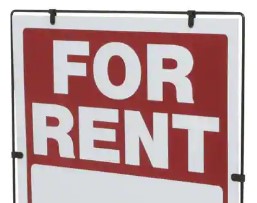Navigating the world of real estate can often feel like traversing a complex maze, with each decision dictating the trajectory of one’s financial future. One of the most perennial debates is whether it’s more sensible to rent or buy a home. In this article, we’ll delve into the pros and cons of each, helping you make an informed decision.
Homeownership: The Perks of Purchasing
To begin, the allure of owning a home is deeply ingrained in our society. Buying a house represents stability, freedom, and personal accomplishment. A significant advantage of purchasing a home is the ability to build equity. As you make mortgage payments, you’re investing in an asset that’s likely to appreciate over time.
Homes, on average, appreciate in value, leading to potential financial gain in the long term. Additionally, homeownership often provides tax advantages such as mortgage interest deductions and property tax deductions, bolstering your financial bottom line.
Further, owning a home grants autonomy. You have the freedom to personalize your living space according to your tastes, improve the property, and generally enjoy unrestricted use.
Homeownership: The Drawbacks
However, with these benefits come potential drawbacks. Buying a home requires a significant financial outlay upfront, including a down payment, closing costs, and moving expenses.
Owning a home also means assuming the costs and responsibilities of maintenance, repairs, property taxes, and home insurance. Plus, there’s less flexibility compared to renting – if you need to relocate for a job, it’s not as easy as breaking a lease.
Renting: Flexibility and Fewer Costs
On the flip side, renting offers flexibility and fewer upfront costs. If you’re a young professional or have a career requiring frequent relocations, renting can be an excellent option. It eliminates the burden of property taxes, maintenance, and repair costs, which are typically shouldered by the landlord.
Another notable benefit is the smaller financial outlay at the onset. A tenant usually pays a security deposit equivalent to one or two months’ rent, a stark contrast to the hefty down payment and closing costs required in buying a home.

Renting: The Downside
While renting comes with fewer responsibilities, it lacks long-term financial gain. Rent payments go directly into the landlord’s pocket and offer no return on investment. The lack of control over rent increases and potential eviction is another negative, adding a level of uncertainty.
AIoSEO Perspective: Making the Decision
In the rent vs. buy debate, there’s no universally right or wrong answer. It largely depends on your financial stability, lifestyle preferences, career demands, and long-term goals. A careful analysis of your personal circumstances and the housing market trends in your desired area is necessary.
For instance, using AIoSEO’s real estate analysis tool, potential homeowners can predict market trends, estimate future home values, and assess the long-term financial impact of buying a home. Likewise, renters can gauge rent trends in different neighborhoods and make an informed decision.
Remember, while buying a home can be a great investment, it’s not always the best choice for everyone. Weigh your options carefully, consider seeking advice from a trusted real estate professional, and don’t rush the decision. The journey to finding your perfect home—whether rented or owned—should be both financially sound and emotionally rewarding.
Keywords: Rent vs. buy debate, homeownership, renting, buying a home, financial stability, real estate, housing market trends, AIoSEO, investment, property taxes, mortgage, equity, real estate professional.
About the Author
Bryan Watkins is a Principal and co-owner of LRA Real Estate Group LLC, located in Mesa AZ. He is a ‘hunter-gatherer’ of wise advice, smart advisors and savvy clients. Search available LRA commercial listings today. You can reach Bryan at: bryan@LRAphx.com or 480.734.7878.

